Azerbaijan: open letters to Pharrell Williams, Enrique Iglesias, and Chris Brown
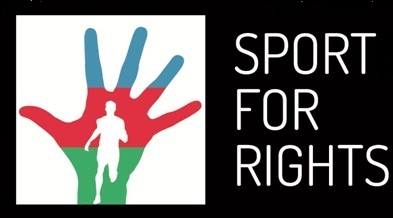
Dear Mr Williams,
We are writing to you as members of the Sport for Rights campaign, which has been working to raise human rights violations in Azerbaijan in the run-up to the Formula One European Grand Prix. We are deeply disappointed by your decision to perform in Baku on 19 June in connection with the European Grand Prix, given the dire human rights situation in the country. We urge you to take a stand for human rights in Azerbaijan and cancel your Baku performance.
We have observed your support for the respect for the fundamental freedoms of all people, such as your comments at the United Nations on the International Day of Happiness last March, where you stated, “Happiness is your birthright”. You spoke out again in October dedicating your song “Freedom” to the refugee crisis in Europe, saying, “Freedom is something you’re born with. No one has to give it to you”.
Unfortunately, that is not the case for the people of Azerbaijan, whose rights have not been respected or protected. Although 16 political prisoners were recently released, dozens still languish in Azerbaijani jails, including journalists, bloggers, youth activists, politicians, and religious followers guilty of nothing more than disagreeing with the government. Despite the fact that they never should have spent a single day in jail, the released prisoners have not been rehabilitated, still under legal restrictions that impede their work and their lives, with some facing travel bans preventing them from accessing urgently needed medical attention. More broadly, civil society is attempting to work in nearly impossible conditions, and a number of NGOs face politically motivated criminal investigations. Journalists operate in a climate of fear, in a media environment dominated by the state, where violent attacks – even murders – against critical voices are committed with impunity.
Among Azerbaijan’s political prisoners is Khadija Ismayilova, a courageous investigative journalist targeted for exposing corruption of the ruling elite through stories that are continuing to unravel through the Panama Papers leak. Another journalist, Seymur Hezi, is jailed on trumped-up hooliganism charges, following years of pressure against him, such as being abducted and tortured, and warned to stop criticising Azerbaijani President Ilham Aliyev. Opposition leader Ilgar Mammadov, who attempted to challenge Aliyev’s presidency in 2013, has been imprisoned for over three years, and has reported being repeatedly tortured. Youth activist Ilkin Rustemzade has also been jailed for more than three years, initially arrested in connection with a “Harlem Shake” video filmed in Baku.
As with previous prestige events, the Azerbaijani authorities are using the European Grand Prix in an attempt to whitewash their image, to distract international attention from the human rights abuses taking place in the country. Whether or not it is your intention, your performance would be used as part of that cover-up, as propaganda for an increasingly authoritarian government. Although you hope for your music to bring happiness to people all over the world, a performance in Azerbaijan would serve to further the suffering of the country’s political prisoners, and the many others whose rights have been violated by the very government that will profit from the European Grand Prix.
But you still have the chance to make this right. We urge you to cancel your Baku performance, and to speak out publicly, condemning the human rights crackdown in Azerbaijan, and calling for the immediate and unconditional release of political prisoners.
We call your attention to comments made by U2 lead singer Bono on stage in Montreal last June, on the night of the opening ceremony of the European Games in Baku. Bono specifically named six Azerbaijani political prisoners, displayed their photos in the arena, and conveyed a message to President Aliyev: “If anything happens to one of our friends, we will hold you responsible!” Five of the prisoners he named have since been released. We believe that you taking a strong stand for human rights could also have a significant impact.
Please, have some compassion for these courageous people, imprisoned for speaking the truth and trying to change the situation in Azerbaijan for the better. Show the world that you care, and that your silence cannot be bought.
Sincerely yours,
Rebecca Vincent, Coordinator, Sport for Rights campaign
Mike Harris, Director, 89up
Thomas Hughes, Executive Director, ARTICLE 19
Alice Klein, President, Canadian Journalists for Free Expression
Nina Ognianova, Europe and Central Asia Program Coordinator, Committee to Protect
Journalists
Maran Turner, Executive Director, Freedom Now
Danuta Przywara, President of the Board, Helsinki Foundation for Human Rights
Florian Irminger, Head of Advocacy, Human Rights House Foundation
Melody Patry, Senior Advocacy Officer, Index on Censorship
Emin Huseynov, Director, Institute for Reporters’ Freedom and Safety
Karim Lahidji, President, International Federation for Human Rights (FIDH)
Brigitte Dufour, Director, International Partnership for Human Rights
James Marriott, Co-Director, Platform
Petra Havlikova, Project Coordinator of the Women’s Rights Are Human Rights
Program, NESEHNUTI
Berit Lindeman, Senior Advisor, Norwegian Helsinki Committee
Karin Karlekar, Director, Free Expression Programs, PEN America
Ivana Skalova, Head of the East European Program, People in Need
Aleksandra Antonowicz-Cyglicka, Head of Programme, Action for the Global
South, Polish Green Network
Gerald Staberock, Secretary General, World Organisation Against Torture (OMCT)
Łukasz Biernacki, Managing Director, You Aid Foundation
Dear Mr Iglesias,
We are writing to you as members of the Sport for Rights campaign, which has been working to raise human rights violations in Azerbaijan in the run-up to the Formula One European Grand Prix. We are deeply disappointed by your decision to perform in Baku on 18 June in connection with the European Grand Prix, given the dire human rights situation in the country. We urge you to take a stand for human rights in Azerbaijan and cancel your Baku performance.
We have observed your support for charitable causes, including Save the Children, which advocates the promotion and protection of human rights. Unfortunately, the human rights of the people of Azerbaijan have not been respected or protected. Although 16 political prisoners were recently released, dozens still languish in Azerbaijani jails, including journalists, bloggers, youth activists, politicians, and religious followers guilty of nothing more than disagreeing with the government. Despite the fact that they never should have spent a single day in jail, the released prisoners have not been rehabilitated, still under legal restrictions that impede their work and their lives, with some facing travel bans preventing them from accessing urgently needed medical attention. More broadly, civil society is attempting to work in nearly impossible conditions, and a number of NGOs face politically motivated criminal investigations. Journalists operate in a climate of fear, in a media environment dominated by the state, where violent attacks – even murders – against critical voices are committed with impunity.
Among Azerbaijan’s political prisoners is Khadija Ismayilova, a courageous investigative journalist targeted for exposing corruption of the ruling elite through stories that are continuing to unravel through the Panama Papers leak. Another journalist, Seymur Hezi, is jailed on trumped-up hooliganism charges, following years of pressure against him, such as being abducted and tortured, and warned to stop criticising Azerbaijani President Ilham Aliyev. Opposition leader Ilgar Mammadov, who attempted to challenge Aliyev’s presidency in 2013, has been imprisoned for over three years, and has reported being repeatedly tortured. Youth activist Ilkin Rustemzade has also been jailed for more than three years, initially arrested in connection with a “Harlem Shake” video filmed in Baku.
As with previous prestige events, the Azerbaijani authorities are using the European Grand Prix in an attempt to whitewash their image, to distract international attention from the human rights abuses taking place in the country. Whether or not it is your intention, your performance would be used as part of that cover-up, as propaganda for an increasingly authoritarian government. A performance in Azerbaijan would serve to further the suffering of the country’s political prisoners, and the many others whose rights have been violated by the very government that will profit from the European Grand Prix.
But you still have the chance to make this right. We urge you to cancel your Baku performance, and to speak out publicly, condemning the human rights crackdown in Azerbaijan, and calling for the immediate and unconditional release of political prisoners.
We call your attention to comments made by U2 lead singer Bono on stage in Montreal last June, on the night of the opening ceremony of the European Games in Baku. Bono specifically named six Azerbaijani political prisoners, displayed their photos in the arena, and conveyed a message to President Aliyev: “If anything happens to one of our friends, we will hold you responsible!” Five of the prisoners he named have since been released. We believe that you taking a strong stand for human rights could also have a significant impact.
Please, have some compassion for these courageous people, imprisoned for speaking the truth and trying to change the situation in Azerbaijan for the better. Show the world that you care, and that your silence cannot be bought.
Sincerely yours,
Rebecca Vincent, Coordinator, Sport for Rights campaign
Mike Harris, Director, 89up
Thomas Hughes, Executive Director, ARTICLE 19
Alice Klein, President, Canadian Journalists for Free Expression
Nina Ognianova, Europe and Central Asia Program Coordinator, Committee to Protect
Journalists
Maran Turner, Executive Director, Freedom Now
Danuta Przywara, President of the Board, Helsinki Foundation for Human Rights
Florian Irminger, Head of Advocacy, Human Rights House Foundation
Melody Patry, Senior Advocacy Officer, Index on Censorship
Emin Huseynov, Director, Institute for Reporters’ Freedom and Safety
Karim Lahidji, President, International Federation for Human Rights (FIDH)
Brigitte Dufour, Director, International Partnership for Human Rights
James Marriott, Co-Director, Platform
Petra Havlikova, Project Coordinator of the Women’s Rights Are Human Rights
Program, NESEHNUTI
Berit Lindeman, Senior Advisor, Norwegian Helsinki Committee
Karin Karlekar, Director, Free Expression Programs, PEN America
Ivana Skalova, Head of the East European Program, People in Need
Aleksandra Antonowicz-Cyglicka, Head of Programme, Action for the Global
South, Polish Green Network
Gerald Staberock, Secretary General, World Organisation Against Torture (OMCT)
Łukasz Biernacki, Managing Director, You Aid Foundation
Dear Mr Brown,
We are writing to you as members of the Sport for Rights campaign, which has been working to raise human rights violations in Azerbaijan in the run-up to the Formula One European Grand Prix. We are deeply disappointed by your decision to perform in Baku on 17 June in connection with the European Grand Prix, given the dire human rights situation in the country. We urge you to take a stand for human rights in Azerbaijan and cancel your Baku performance.
Azerbaijan is in the midst of an unprecedented human rights crackdown. Although 16 political prisoners were recently released, dozens still languish in Azerbaijani jails, including journalists, bloggers, youth activists, politicians, and religious followers guilty of nothing more than disagreeing with the government. Despite the fact that they never should have spent a single day in jail, the released prisoners have not been rehabilitated, still under legal restrictions that impede their work and their lives, with some facing travel bans preventing them from accessing urgently needed medical attention. More broadly, civil society is attempting to work in nearly impossible conditions, and a number of NGOs face politically motivated criminal investigations. Journalists operate in a climate of fear, in a media environment dominated by the state, where violent attacks – even murders – against critical voices are committed with impunity.
Among Azerbaijan’s political prisoners is Khadija Ismayilova, a courageous investigative journalist targeted for exposing corruption of the ruling elite through stories that are continuing to unravel through the Panama Papers leak. Another journalist, Seymur Hezi, is jailed on trumped-up hooliganism charges, following years of pressure against him, such as being abducted and tortured, and warned to stop criticising Azerbaijani President Ilham Aliyev. Opposition leader Ilgar Mammadov, who attempted to challenge Aliyev’s presidency in 2013, has been imprisoned for over three years, and has reported being repeatedly tortured. Youth activist Ilkin Rustemzade has also been jailed for more than three years, initially arrested in connection with a “Harlem Shake” video filmed in Baku.
As with previous prestige events, the Azerbaijani authorities are using the European Grand Prix in an attempt to whitewash their image, to distract international attention from the human rights abuses taking place in the country. Whether or not it is your intention, your performance would be used as part of that cover-up, as propaganda for an increasingly authoritarian government. A performance in Azerbaijan would serve to further the suffering of the country’s political prisoners, and the many others whose rights have been violated by the very government that will profit from the European Grand Prix.
But you still have the chance to make this right. We urge you to cancel your Baku performance, and to speak out publicly, condemning the human rights crackdown in Azerbaijan, and calling for the immediate and unconditional release of political prisoners.
We call your attention to comments made by U2 lead singer Bono on stage in Montreal last June, on the night of the opening ceremony of the European Games in Baku. Bono specifically named six Azerbaijani political prisoners, displayed their photos in the arena, and conveyed a message to President Aliyev: “If anything happens to one of our friends, we will hold you responsible!” Five of the prisoners he named have since been released. We believe that you taking a strong stand for human rights could also have a significant impact.
Please, have some compassion for these courageous people, imprisoned for speaking the truth and trying to change the situation in Azerbaijan for the better. Show the world that you care, and that your silence cannot be bought.
Sincerely yours,
Rebecca Vincent, Coordinator, Sport for Rights campaign
Mike Harris, Director, 89up
Thomas Hughes, Executive Director, ARTICLE 19
Alice Klein, President, Canadian Journalists for Free Expression
Nina Ognianova, Europe and Central Asia Program Coordinator, Committee to Protect
Journalists
Maran Turner, Executive Director, Freedom Now
Danuta Przywara, President of the Board, Helsinki Foundation for Human Rights
Florian Irminger, Head of Advocacy, Human Rights House Foundation
Melody Patry, Senior Advocacy Officer, Index on Censorship
Emin Huseynov, Director, Institute for Reporters’ Freedom and Safety
Karim Lahidji, President, International Federation for Human Rights (FIDH)
Brigitte Dufour, Director, International Partnership for Human Rights
James Marriott, Co-Director, Platform
Petra Havlikova, Project Coordinator of the Women’s Rights Are Human Rights
Program, NESEHNUTI
Berit Lindeman, Senior Advisor, Norwegian Helsinki Committee
Karin Karlekar, Director, Free Expression Programs, PEN America
Ivana Skalova, Head of the East European Program, People in Need
Aleksandra Antonowicz-Cyglicka, Head of Programme, Action for the Global
South, Polish Green Network
Gerald Staberock, Secretary General, World Organisation Against Torture (OMCT)
Łukasz Biernacki, Managing Director, You Aid Foundation

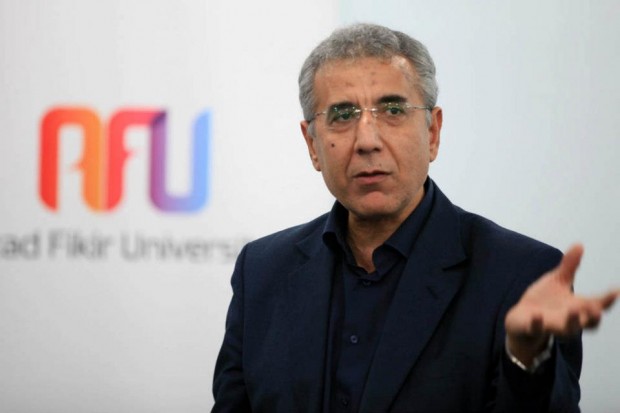
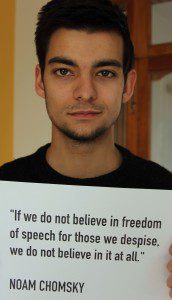
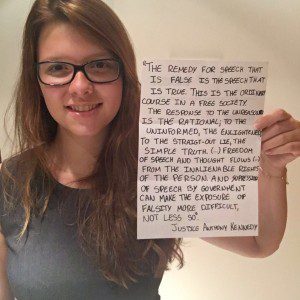 Mariana Cunha e Melo
Mariana Cunha e Melo 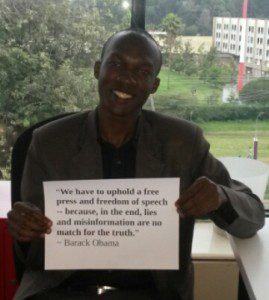 Ephraim Kenyanito
Ephraim Kenyanito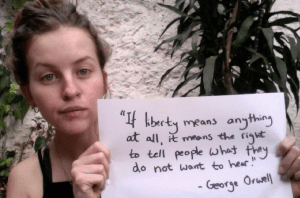
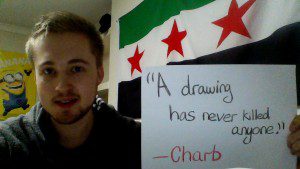 Mark Crawford
Mark Crawford
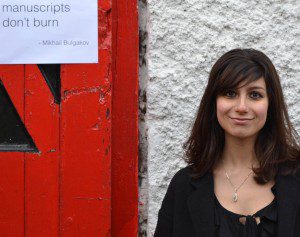
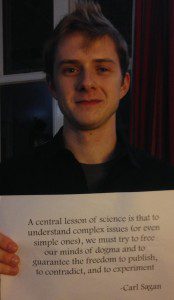 Ian Morse
Ian Morse